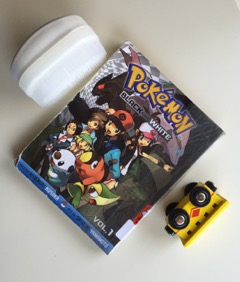When I became a mom, I had a pretty hefty bag of parenting tools at my disposal. But over time, the needs that come with my son’s autism made me throw out most of my “tools.”
There was one tool that worked pretty consistently…but I didn’t like to use it.
The tool? Bribery.
It’s the ol’ “If you finish your broccoli you can have a cookie” song and dance.
It worked. But I found myself cringing every time I bribed my son towards the behavior I desired from him.
I wanted him to follow my instructions.
I wanted him to eat his green beans for the sake of his health.
I wanted him to sit through a church to learn more about God.
I pulled back on the bribes, trying to explain the intrinsic value of why we should or should not do certain things. But that didn’t work either.
I expressed my frustration at one of my son Benji’s therapy appointments.
“I don’t want to bribe him to do the things he should be doing already. I mean, he’s part of the family. He should clean up his room.”
“That’s true,” our therapist nodded. “But, call it what you will — bribing, incentives — we all are motivated by something. Even if you love your job, people ultimately go to work for the paycheck. Money is a huge motivator to get up and be responsible each morning.”
I paused, listening to her reasoning.
“Eventually,” she went on, “we want Benji to get in the habit of doing the right thing, incentive or not. But utilizing incentives for a desired outcome isn’t wrong. It can be a very good thing.”
“So you’re telling me it’s OK to bribe my kid?”
We both laughed.
And I relaxed a bit.
Bribing — incentives — (whatever) works for us.
In fact, it has been the best tool in my bag for motivating Benji towards good behavior and fewer meltdowns.
Now that he’s 8, I don’t have to promise a cookie for him to eat his vegetables. He knows that eating his veggies is part of dinner.
But in other things, an incentive — small or large — sparks his interest; it motivates and excites him. In many cases, it’s the difference between Stuck and Moving Forward.
I don’t apply incentives to everything. Sometimes I throw down the “because you’re part of this family” card or remind him that kindness and being friendly is its own reward.
But for our cyclical struggles, like church, the incentive has become a reliable tool.
Benji knows if he sits quietly with us during the service and participates in Sunday School, he can watch Pokemon on Netflix that afternoon. He loves Pokemon and looks forward to it each week (in fact, he’s started calling Sunday “Pokemon Day”).
Sure, I’d like him to sit still, participate in the service and be an attentive listener in Sunday School because he wants to learn about God and please his parents, teachers and friends.

But they are abstract rewards, even if he understands or even wants those things. He struggles with the abstract, so giving him the concrete reward of Pokemon is the incentive that helps remind him of how we believe he should act and wants to act.
The Pokemon incentive is immediate gratification. But we’re trying to inspire him to work towards a goal with delayed gratification, too.
Right now, he is doing chores to get a new toy. I made a chart to track his progress. For each chore he earns 25 cents; 40 chores will get him to his goal. He’s pretty excited to mark the dots on his chart so he can visually see his progress.
Am I bribing my kid to do housework? Eh, maybe.
Bribing? Incentives? Working towards a goal? We’ve all been there as parents and as individuals. After all, as adults, we “bribe” or remind ourselves of the incentives of XYZ all day long to help motivate us towards our goals.
I try not to abuse the “bribe.” He doesn’t get to eat a lollypop or play on the iPad for every dot and tittle of good behavior. But incentives are part of the real world, so I’m planting that tool firmly in my parenting bag and am throwing out the guilt of “bribing” my kid with what motivates him.
After all, my therapist said it was OK.
Follow this journey on The Bam Blog.
Lead photo source: Thinkstock Images
